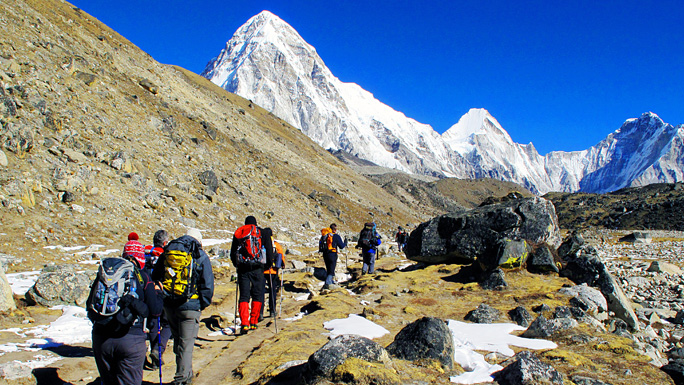KATHMANDU: If you are planning to travel to Nepal after the COVID-19 pandemic, make sure to carry a travel medical kit with you.
First aid and medications might not be available in all places in the country.
If you are planning to visit a remote hill station or going for a jungle safari or a trek, you won’t get medical help.
You need to rely on the items that you carry to treat minor injuries and illnesses.
Cough and cold, cuts and wounds, diarrhea, headache, and mild fever are some of the common health problems that can occur anytime, anywhere.
Therefore, your travel health kit will help you against these problems.
Medicines you need to include in your health kit while travelling in Nepal
Before you begin your trip, make sure to make a checklist to pack some essential items in it.
Besides your prescribed medicines, you need to carry your medical equipment and medicines that will keep you healthy and safe during your trip.
Tablets for cold and flu
It is not unusual to catch a cold and flu during your trip. Symptoms of common cold and flu are sore throat, headache, body ache, nasal congestion and even mild fever.
Common tablets or medicines containing cough suppressants, decongestants, and pain relievers need to be carried with you.
Cough medicine
Cough – dry or wet — can be annoying during travel. Therefore, you are advised to include cough syrups in your medical kit. While cough suppressant provides relief from coughing, expectorants are used for treating wet cough.
Analgesic medicine
These are painkillers that can help to alleviate pain during travel. Including analgesic medicines in your kit will help you if you experience body pain, back pain, or a headache.
Anti-histamine tablets
While travelling, there are chances of allergies that can occur due to change in weather or place. Therefore, you need to carry antihistamine tablets in your health kit for allergies, bites, or stings.
These tablets provide relief from seasonal and food allergies. Most common symptoms of allergy are runny rose, sneezing, watery eyes, hay fever, and throat itching.
Throat lozenges or chewing gums
Throat lozenges and chewing gums increase the production of saliva and as a result they reduce dryness of the throat.
Motion sickness tablets
Motion sickness tablets are important during travel. It is a health condition that some travelers suffer while travelling by car, bus, car, or flight.
Motion sickness often makes someone feel dizzy or uneasy, and is followed by vomiting.
Diarrhea medicine
While travelling, one can experience diarrhea due to consumption of contaminated food or water.
Therefore, it is essential that you include diarrhea medicine in your travel health kit.
Antacid tablets/syrup
A traveler is also advised to carry antacid tablets or antacid syrup. It neutralizes the acidity of the stomach and gives a person relief from indigestion.
Acidity is a common health condition mainly during travel.
Antiseptic ointment
Carrying an antiseptic solution and ointment is important during travel. Applying an antiseptic solution or ointment is necessary when one gets injured or wounded during travel.
This helps in treating cuts and wounds, and even abrasions, insect bites, and stings.
Band-aids/Handiplasts
A traveler is required to carry quite a few number of band-aids or handiplasts in the medical kit. They are adhesive bandages used for treating minor wounds and injuries. Band-airs usually prevents germs and dirt from entering the wound.
Insect repellant cream/solution
Carrying an insect repellant cream or solution is important while traveling as there are places that have plenty of mosquitoes and bugs.
Multi-Vitamin tablets/capsules
Multi-vitamin tablets can give a person the energy during a trip. These tablets can keep a traveler energetic.
Pain relief balm/spray
While traveling, it is common to sprain for ankle or back during. Therefore, a pain relief balm will help you during such times.
Also do not forget to carry a sunscreen cream, a digital thermometer, and scissors with you.








Comment